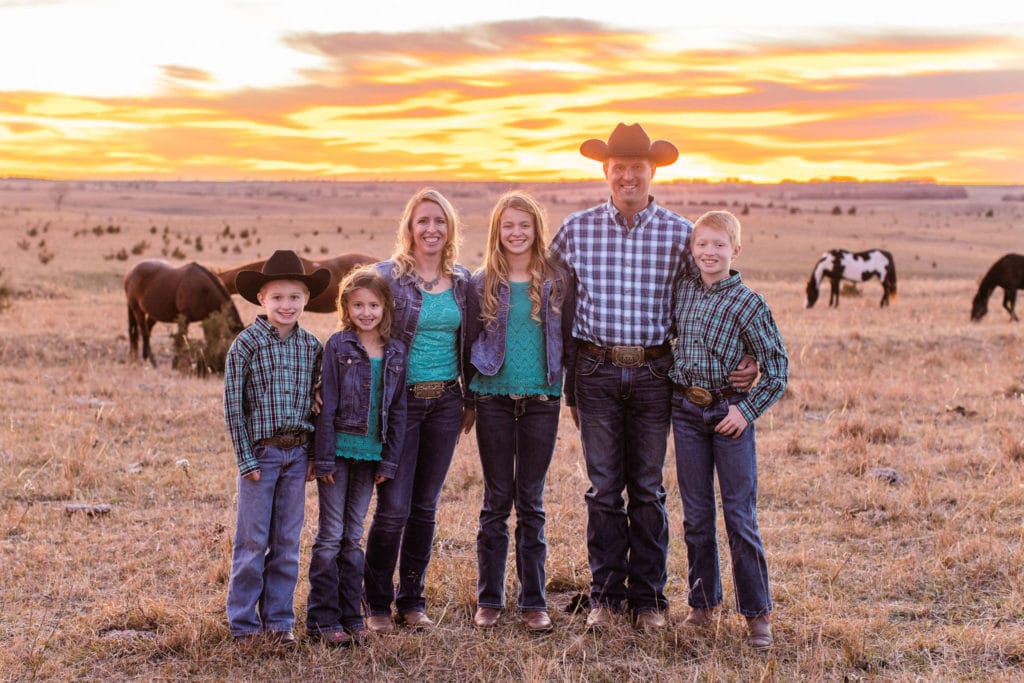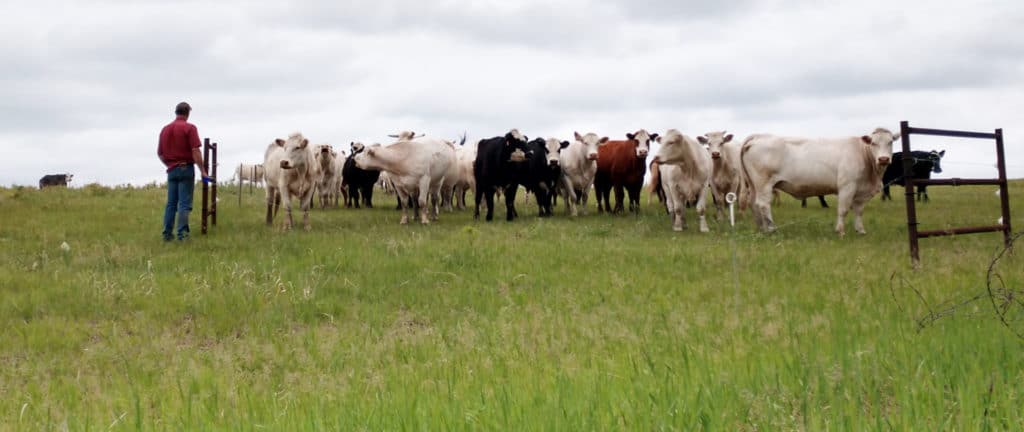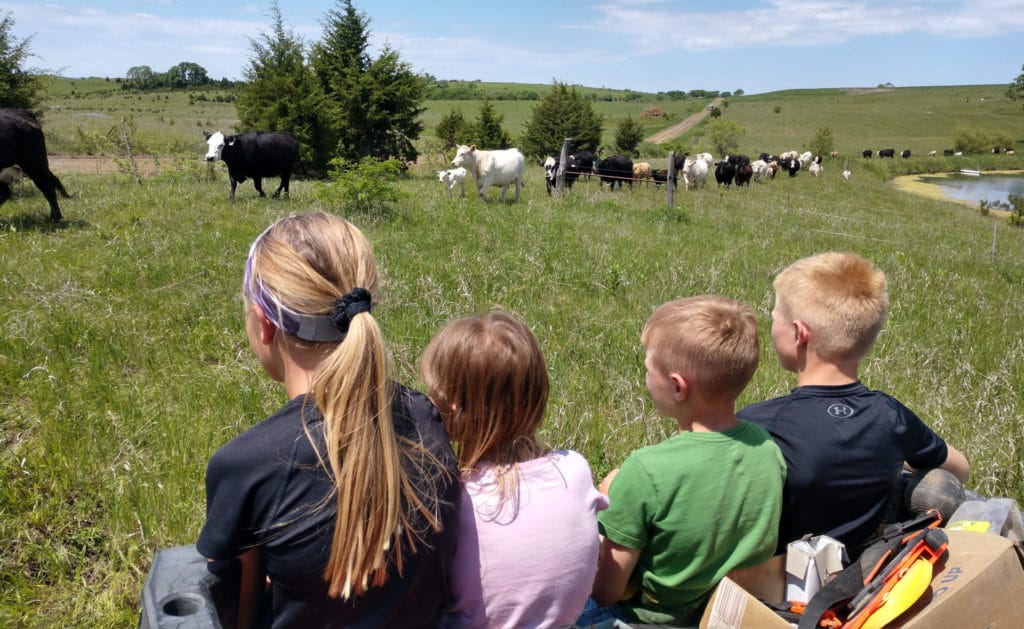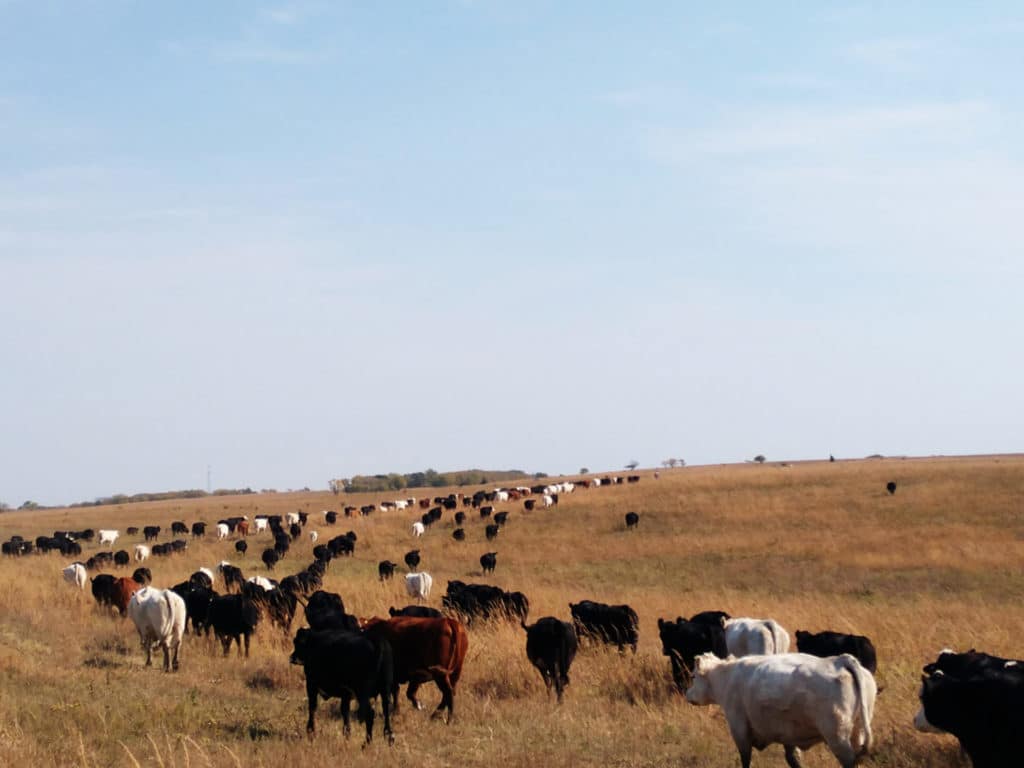
On the Brink of Foreclosure, Rancher Finds Regenerative Path Forward
As a life-long rancher, Ben Schnuelle had experienced his share of adversity. But 2019 was wrought with challenges unlike any the 46-year-old Nebraska native had previously encountered.
That winter, the Schnuelles witnessed their tractors buried in mud, they battled devastating blizzards and lost hundreds of cattle. During one storm, 33 calves perished in a single night.
“We were trying to feed right, follow all of the prescriptions, do what everybody does and it just wasn’t working,” he says. “My life was upside down and I didn’t know what to do. The financial stress I was under was taking a toll on me and on my family, too.”
Struggling to keep the farm solvent and stave off foreclosure, Ben was encouraged by a friend to watch several YouTube videos featuring Soil Health Academy instructor Gabe Brown.
“I started listening and looked for everything I could find,” he says. “I reached out to Gabe by email, and I thought, ‘Well, there’s no way he’ll respond,’ but he did, and he got me a scholarship to go to the Soil Health Academy School at Shane New’s farm in Holton, Kansas.”
Sitting in the front row throughout the class, asking what he describes as “a million questions,” Ben quickly realized that what he had been taught previously—the prescriptions that he had dutifully followed—had been wrong.
“God was pushing me in a direction, saying ‘What you’re doing is not going to work. Get over here.’”
Through the instruction and mentoring of the SHA instructors, Ben says he learned that nature has inherent resiliency, and realized he didn’t need all of the prescriptions and costly conventional farming techniques that had landed him on the verge of bankruptcy.

Since attending those schools and after implementing the soil health principles he has learned, things are turning around for the Schnuelles, who operate a 300-head, mostly grass-fed operation near Plymouth, Nebraska.
“We’re getting along because we changed what we were doing. We’re not completely there yet but the principles we were taught at the SHA and through our relationship with Gabe and the other instructors have given us hope that we can still make it regardless of what the banks may do to us,” he says. “There are ways to succeed without having to borrow your life away.
Ben is far from alone on his regenerative journey. His wife, Connie, and children Caleb (11), Claire (10), Carsten (9) and Charity (7) are all integral to the farm’s day-to-day operation and to its new, regenerative direction.
“My wife is amazing, she’s just amazing.” Ben says. “She has a full-time job and still helps enormously around the farm, all while also caring for our four children. And her parents have supported us, both physically and emotionally, when there was no one else.”
Even attending the grazing-focused Soil Health Academy in New Mexico a year ago was a family affair—an educational awakening for both the parents and the children, the latter of which, Ben says, were quick to absorb important lessons and bring them back to the farm.
“While out in our pasture last year,” Ben recalls, “our oldest daughter, Claire, said, ‘You know Gabe would scold you. We’re over grazing this, Dad.’ She was right. And so we moved the cattle.”

Ben readily admits that his regenerative journey wasn’t by design. “It was forced on us,” he says. “We were broke. We were doing the regenerative ‘things’ before we met Gabe because we were broke. Gabe told us that’s how he got into it.”
Ben says he tells his children and others that failure isn’t failure if you do it right. “When you fall, fall forward. Don’t fall back. Learn, change, adapt, tweak it, but fall forward,” he says. “What we do today will have a positive or negative influence on tomorrow and determines what kind of legacy we leave.”
In addition to sharpening his observation and regenerative management skills, Ben says another important benefit of attending two SHA schools was the realization that he was not alone—that there are others who have faced the same challenges and are overcoming them.
“It gives you the confidence that ‘If they can do it, I can do it,’” Ben says. “SHA provides a lot of information but, most importantly, they want us to succeed.”
Three years after beginning the journey, the Schnuelles success hasn’t fully blossomed, but the seeds have sprouted. The cattle are healthy, breeding and flourishing.
“Year one, you’re kind of taking the cows off ‘drugs’ because they’re adapting to a new systems and so we had some issues,” he says. “Year two, was okay, but this year was really good. It was like the first year or two the cows short-circuited and now they’re going again—and going well. Our cattle are easy to work with and they’re in demand at the auction barn because of their condition.”
Best, of all, because of the adaptive grazing techniques he employs, feed costs are down and net profit margins are up. The hard work is paying off but Ben’s quick to give credit where he believes credit is due.
“All I did was implement what I was taught at SHA,” he says. “But you also need to be diligent and do the work. If you do the work, God has designed a plan to succeed. The problem is, too often we get in the way.”

